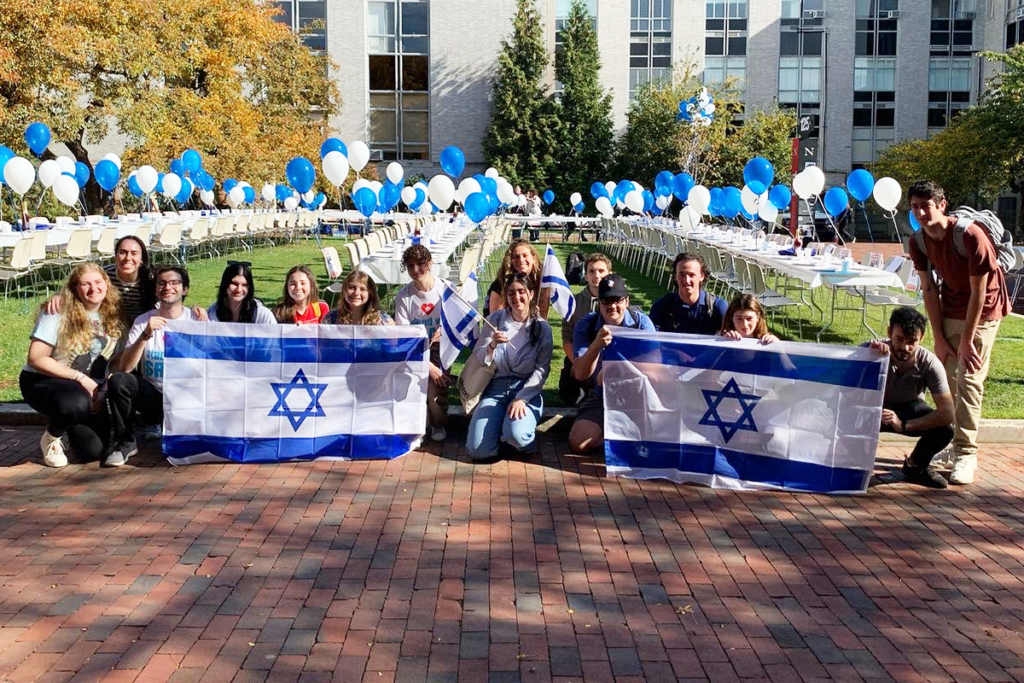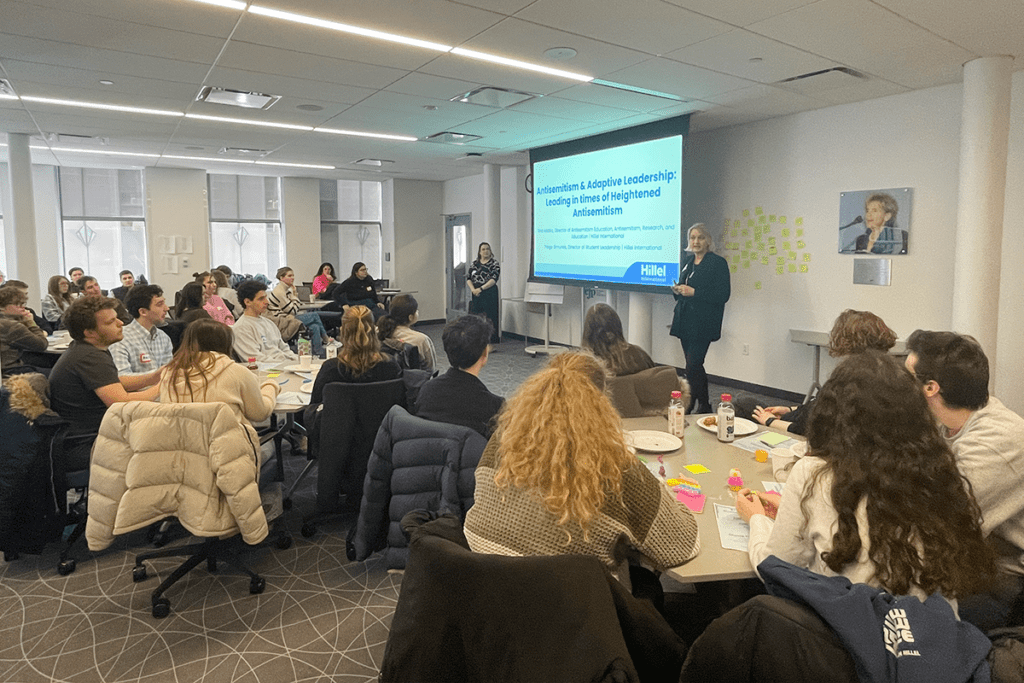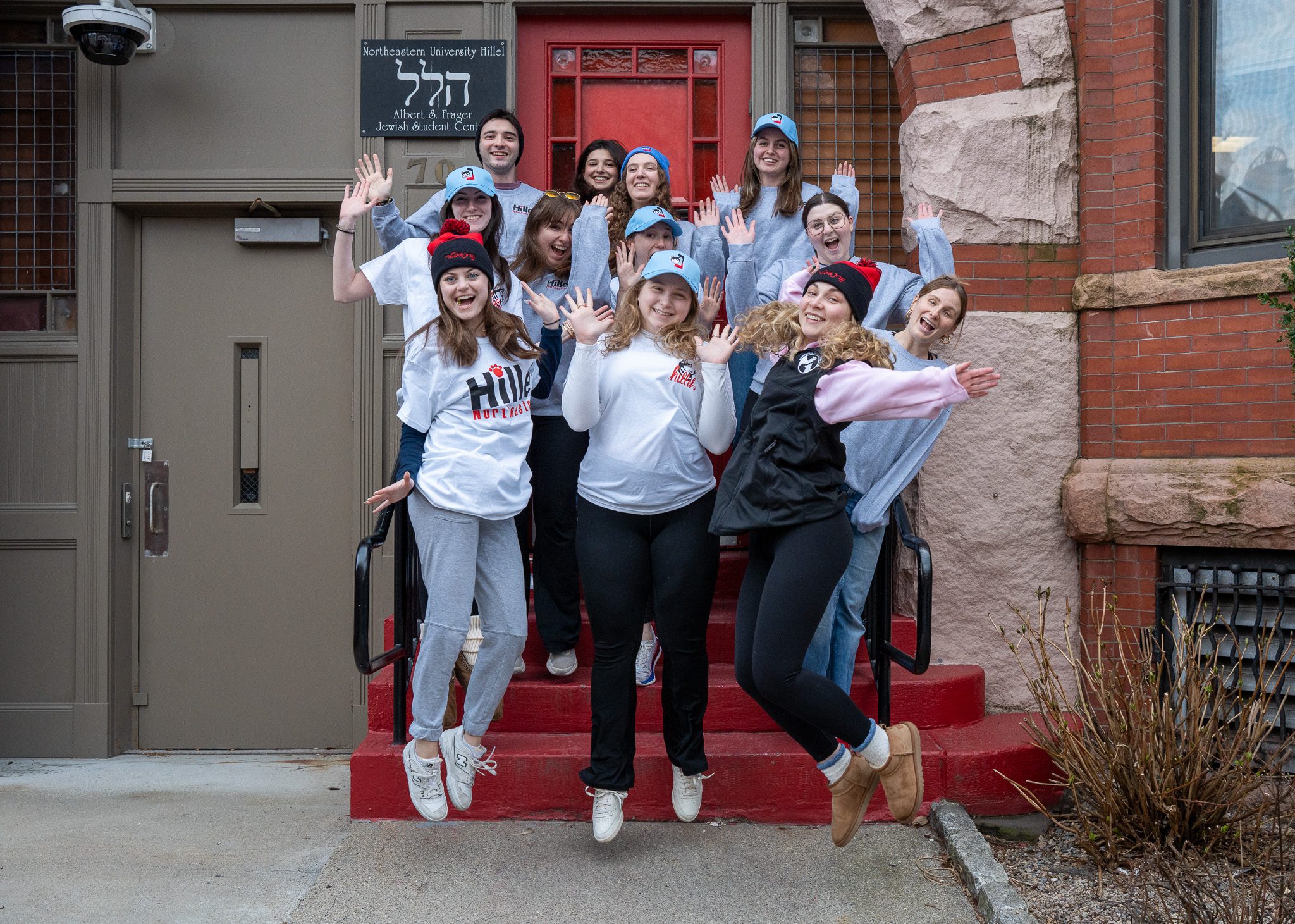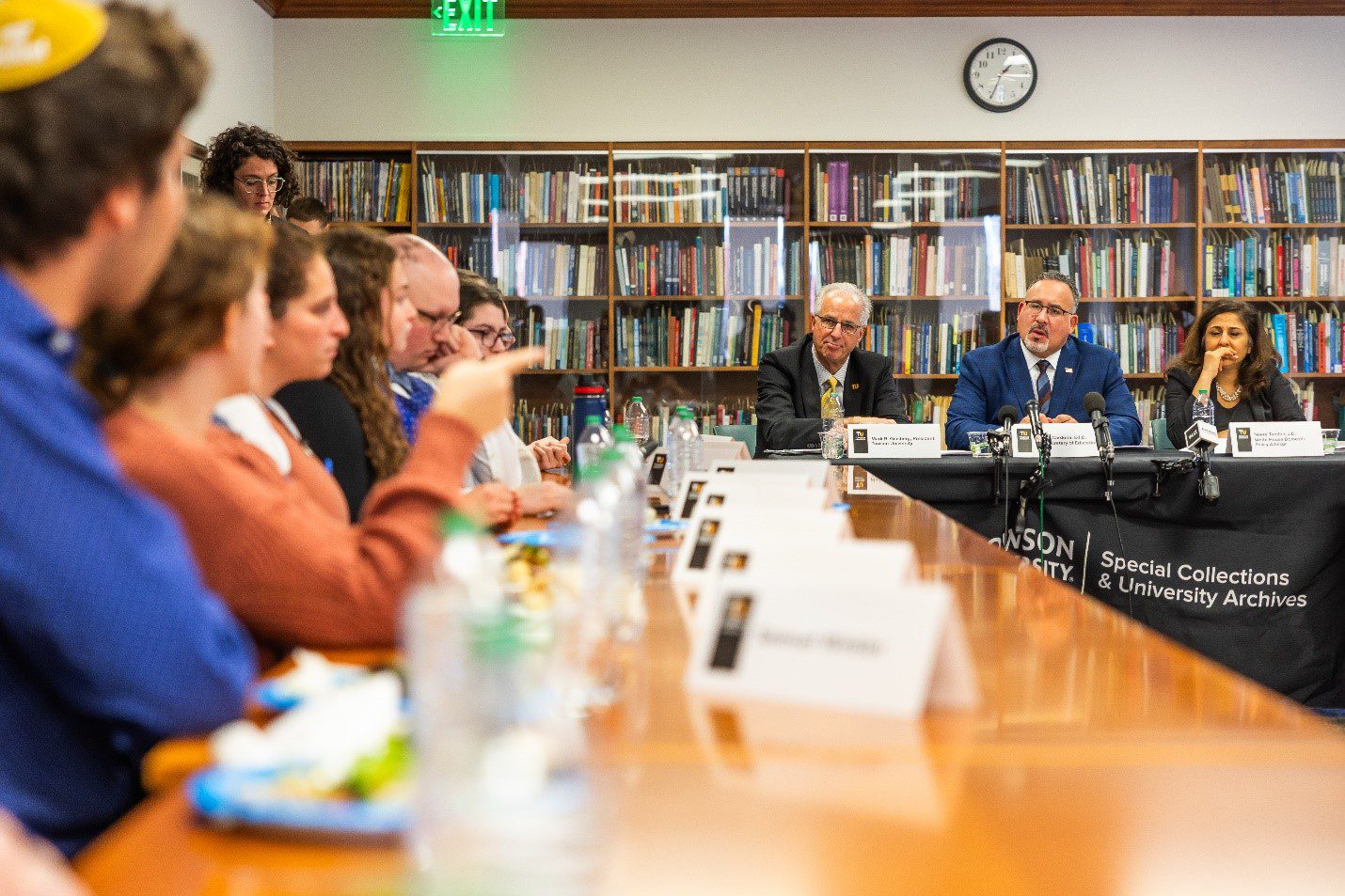By Kate Whitney
“What’s antisemitism like on campus?”
Jen Stone, associate director of Northeastern University Hillel, says that’s the first question every parent asks her at Admitted Students’ Day on campus.
The students, she says, inquire about Hillel’s programs or how they can get involved. “It’s the other side of the same question,” she explains. “They’re asking if Jewish life is vibrant.”
Nationwide, campuses have seen everything from harassment to encampments to outright violence. Antisemitic incidents have skyrocketed. But Stone and her colleagues are prepping for the fall semester following one of the most challenging years for Jewish students with excitement.
“We’re really lucky to have such a supportive administrative staff at Northeastern and we work hard to ensure we’re creating a student experience that centers around leadership, Jewish joy, and an enduring commitment to Jewish life on campus, Israel, tzedek (the act of giving generously), and tikkun olam (repairing the world),” Stone says.
“Our engagement numbers were up last year for sure,” Stone continues. “We saw more students, more often, and we saw students who just really wanted to be surrounded by their Jewish peers. The tone definitely changed. It was harder to just be Jewish on campus, and it was crucial for students to be able to be around one another. Our building became more vibrant because there was a need to have that space.”
“I’m not just a college student. I’m a Jewish college student.”
Gabi Bailey, a senior majoring in bioengineering and biochemistry on a pre-med track, is one of those Northeastern University students who truly “found a home” at Hillel.
“It was a really scary time after Oct. 7,” Bailey says. “And I felt really isolated among my non-Jewish friends. I had never felt that separation before, that sense of otherness, and my perception of the world was shifting. I saw a lot of people who were not Jewish making so many judgments, having no idea how intimately Jews’ sense of safety is tied to the existence of Israel, and making assumptions about my values. For the first time since I was in school, I couldn’t pay attention; I was constantly scrolling through the news on my phone. And I realized, I’m not just a college student, I’m a Jewish college student.”

Bailey’s engagement with Israel and Jewish life was already strong before Oct. 7: She’s been to Israel on an Onward Israel summer internship program and has been involved with service work through Repair the World, frequently volunteering her time at Yachad and Hebrew SeniorLife. When things became difficult on campuses, Bailey couldn’t engage with the hate, but leaned into her love for Jewish life.
“There’s a place and a need for those kinds of leaders,” she says. “And I think there are different roles for different people. This past year, I’ve had to get solid and secure in my values and deeply consider my place in this.”
This year, she’s acting as Hillel’s social programming chair and, although the issues on campus likely won’t have disappeared, she’s looking forward to the year ahead.
“My mindset is to focus on community completely,” Bailey says. “I want to have fun and get closer to people, I’m excited for Shabbat, I’m focused on tikkun olam. I would tell incoming students: No matter how religious you are, try Hillel, try Chabad. There’s really something for everyone.”
Stone too hopes that Jewish students see Hillel as their pipeline for friendship, wellness, and leadership opportunities. Thanks to a Campus Education & Allyship Challenge grant from CJP’s Center for Combating Antisemitism (CCA), they’re piloting a Campus Antisemitism Peer Educators (CAPE) program designed to send student leaders onto the campus community for peer-to-peer conversations about identifying and preventing Jewish hate.
“As a nonprofit, we wouldn’t have the capacity to do this on our own,” Stone says. “CJP’s CCA connected us to Project Shema for assistance with this program, so, not only are they funding us, but they’re making crucial connections for us.”

CJP also hosted nearly 70 student leaders for a Boston-Area Student Hillel Leadership Conference on Feb. 4, 2024, where they heard from speakers from Hillel International and CJP’s president and CEO, Rabbi Marc Baker.
“Here are college-aged young adults going into downtown Boston on a Sunday to spend their day off meeting in conference rooms to learn, grow, and develop as Jewish leaders on campus—it was a real investment in our students, and we couldn’t have done it without CJP,” Stone says.
That investment in the students is what’s motivating Stone and the rest of Northeastern’s Hillel staff as they plan for what’s ahead, focusing on being “radically welcoming, developing and fostering leadership opportunities for those who want them, and creating a safe space for students who just want to hang out and do their homework around their Jewish peers.”
“We are still keeping the hostages in our hearts, and we are acutely aware there’s still a war in the Middle East—and, at the same time, there’s also this desire for joy and a passion for community,” Stone says. “You also have students juggling everyday college challenges: managing a class schedule that’s not 7-2, eating in dining halls, interpersonal conflicts, and roommate issues—we’re here for all of it. We don’t want students walking onto campus scared; we want to empower them to be proud Jewish people and know that they have the resources and a safety net.”
Kate Whitney is the associate creative director at CJP.
 Share your story
Share your story 




